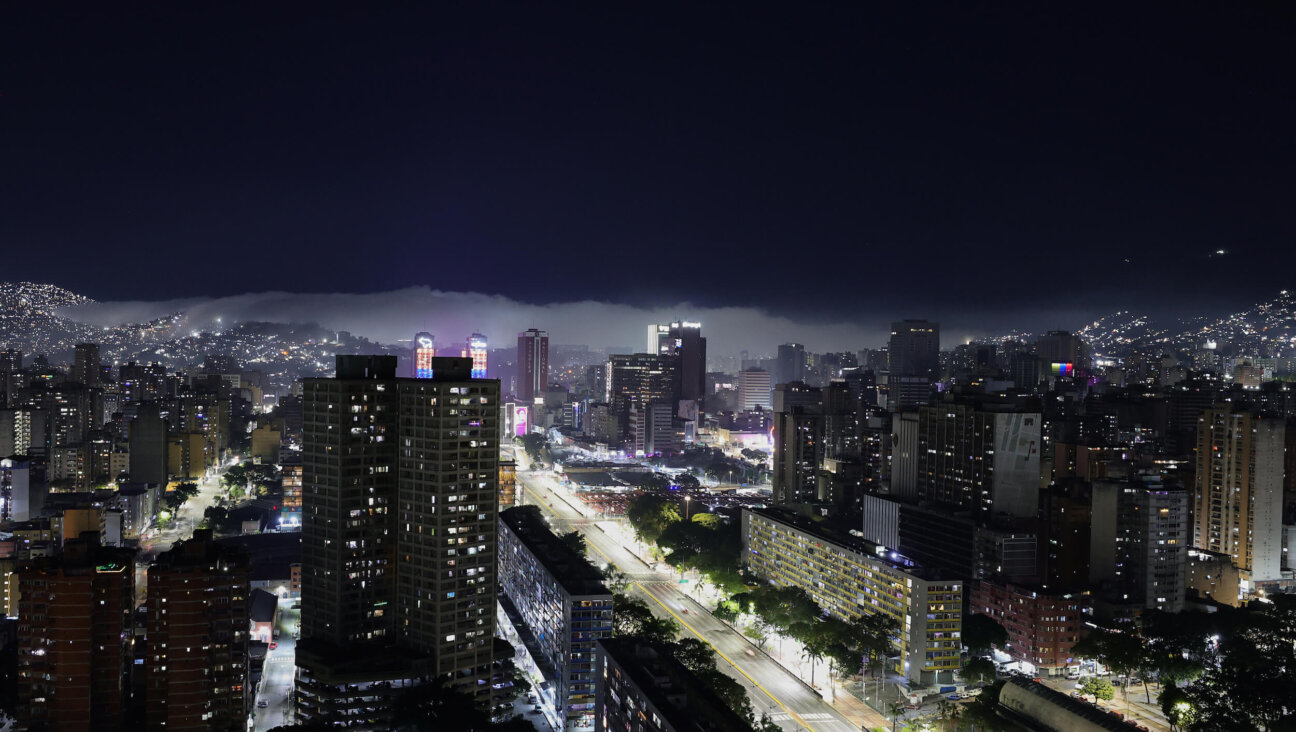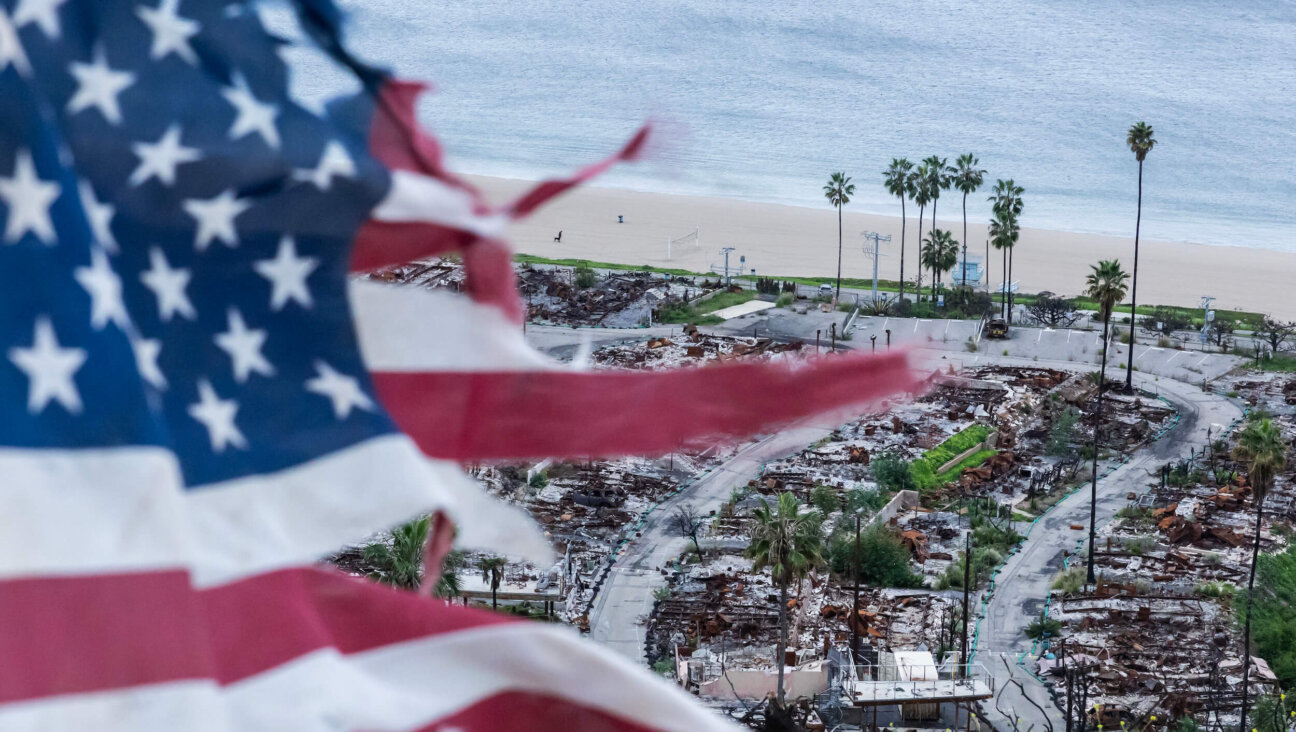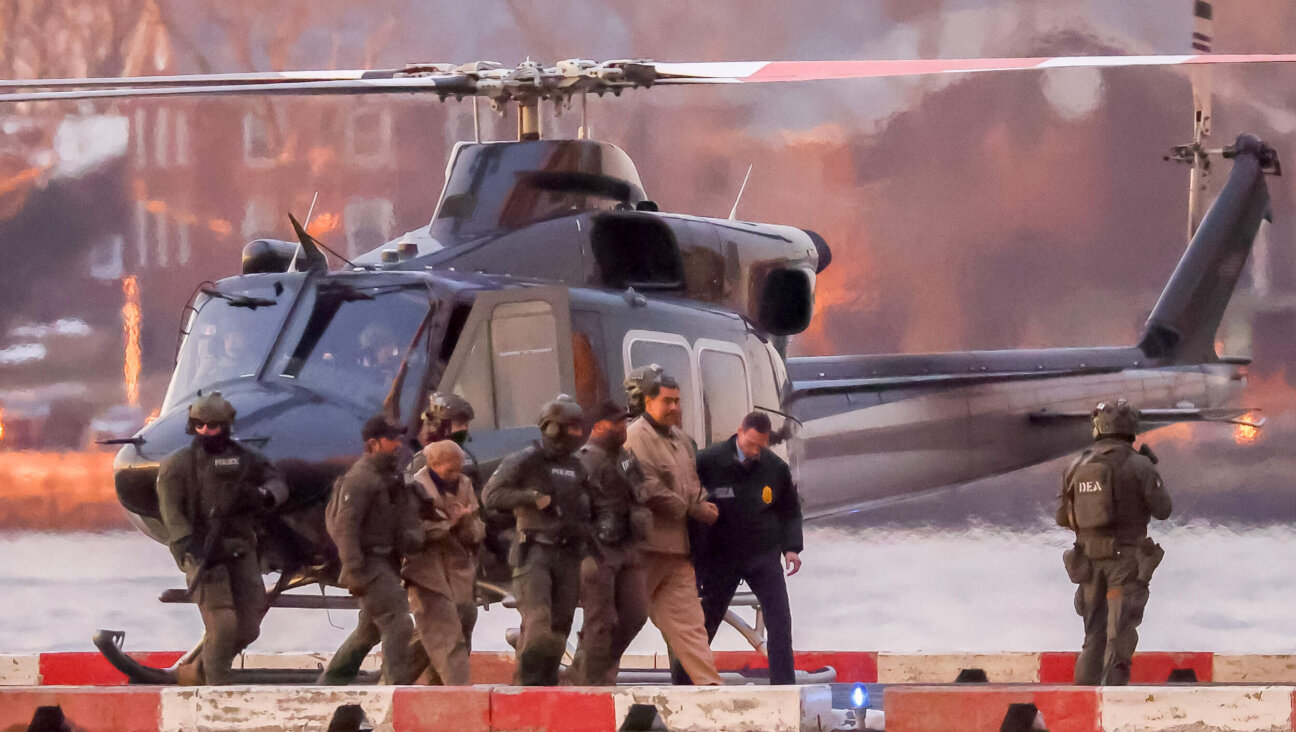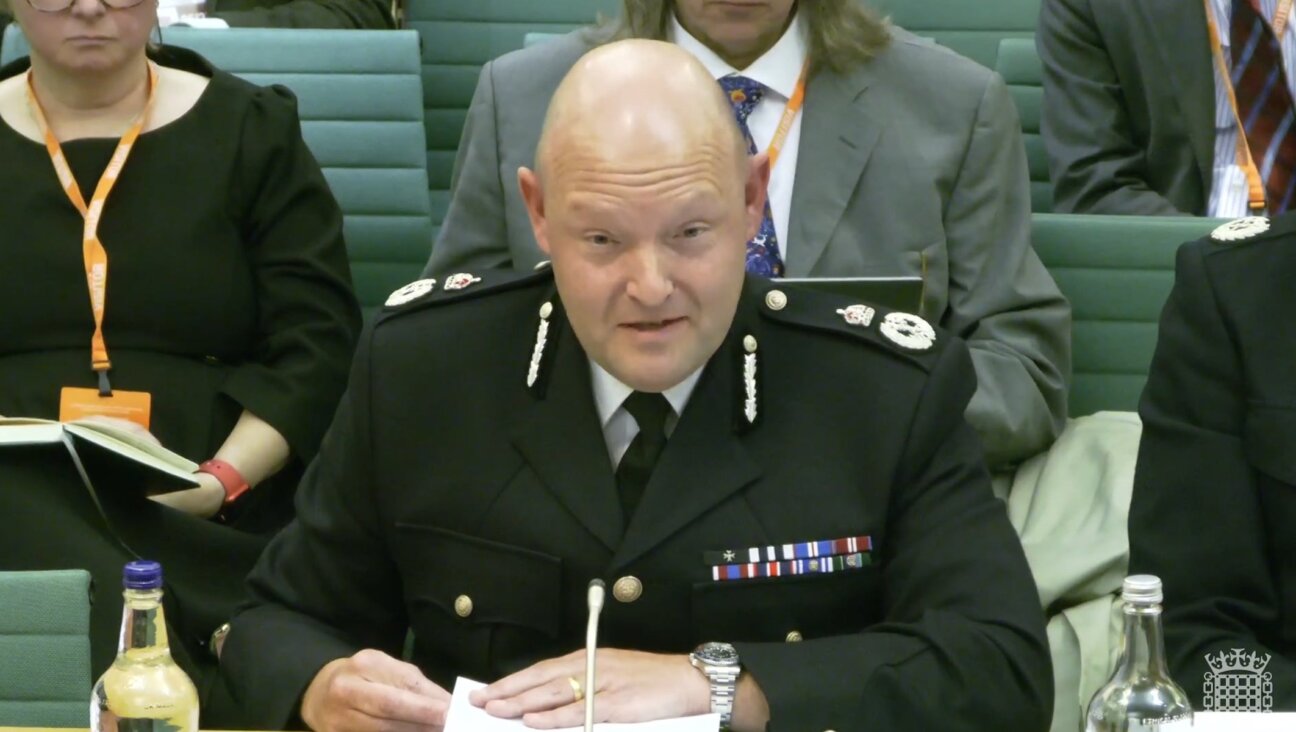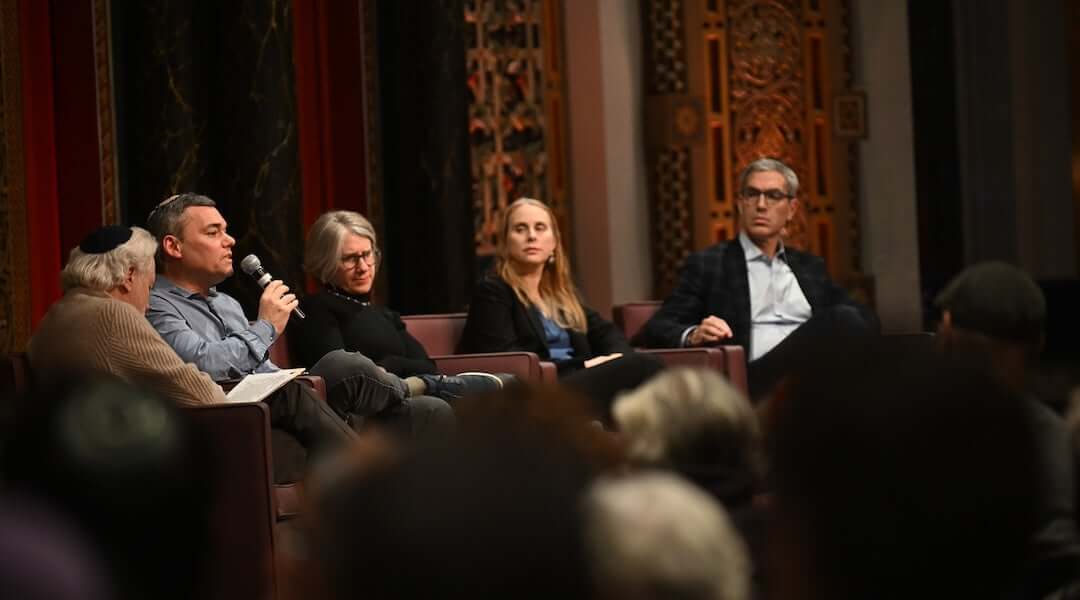The Conclave of Hate
In a way, the Iranian regime may have done the world a favor when it decided to host this week’s international gathering of Holocaust deniers. By rolling out the red carpet for the ugliest gathering in recent memory of frauds, nutballs, white racists and unreconstructed Nazis from every dark corner of the world, Mahmoud Ahmadinejad and his bully boys have made plainer than ever the sort of people they are. Their bizarre festival of hate has driven home to the world community, in a way that nothing else could do, just who it is that sits in Tehran and schemes to build a nuclear bomb.
Somehow, it seems, Ahmadinejad crossed a line this week. A week earlier, he could still rant about “wiping Israel off the map” and honest folks could somehow convince themselves that it was a pose, that his ravings were part of a subtle plan to maneuver for diplomatic or economic position. Now, after the world has seen him soberly exchanging views with the likes of David Duke, there are no more excuses.
World reaction makes this plain. In London, Prime Minister Tony Blair called the Iranian conference “shocking beyond belief.” Leaders in Berlin, Paris, Ottawa and a dozen other capitals responded similarly. So did the pope. Even Ahmadinejad’s own people seem to have been shaken from their torpor. Addressing a group of students on the opening day of the conference, the Iranian president found himself openly heckled for the first time in months. Amid catcalls of “Death to the president,” the students protested that his conclave of crackpots had made Iran a laughingstock.
Of all the international reactions, the most gratifying was the indirect response of China and Russia. Speaking at the United Nations on December 12, the closing day of the Iranian hatefest, the Chinese ambassador announced that he and his Russian counterpart had finally come around to accepting the international sanctions that Washington has been pursuing for months, to punish Iran for its refusal to stop its nuclear program. They are finally ready to turn the screws. Nothing was said about the Tehran Holocaust conference, and the timing might well have been coincidence, but the symbolism was unmistakable — and surely was not lost on Ahmadinejad and his henchmen.
If the Chinese-Russian sanctions announcement was the most welcome response to the conference, surely the least welcome was the official silence coming from most of the Arab and Muslim world. Beyond some quiet tut-tutting, leaders of Muslim nations, moderates and radicals alike, had little to say about the shameful goings-on. Part of the reason for the silence, no doubt, is shame. Part of it is reluctance to interfere at a moment when Israel seems to be taking a beating. Part of it is fear of reaction from their own streets, where the wildest, ugliest anti-Jewish canards have become popular fare in recent years. And in some quarters, the silence simply means assent.
Part of the silence, too, arises from fear of what might come next. Most leaders of the Arab world loathe and fear the mullah regime in Tehran, as much if not more than America and the West fear it. Like us, they worried about it a decade or two ago, when it was a middle-sized power locked in a death-struggle with Saddam Hussein’s Iraq. Unlike us, they are acutely aware of how our moralizing blunders eliminated Saddam and turned Iran into a first-rank regional superpower. They are terrified of our next blunder.
Containing Iran, isolating and defanging it, poses a diplomatic challenge of the utmost complexity and delicacy. Blunt force can boomerang, as we should have learned by now. Left to its own devices, the regime can sometimes be its own worst enemy. This week was a prime example of that. The world, we found out, is still capable of recognizing lunacy. That’s a good thing to know.

